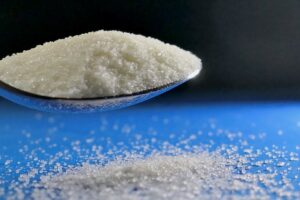|اسٹور لانچنگ کے مرحلے میں ہے! براہ کرم ابھی آرڈر نہ کریں۔!|
| Sign up for our newsletter to receive the latest deals and updates |
| Hassle-free 07-day returns on all products |
| Visit our showroom at Abdullah Cookware Store for an in-store shopping experience |
|Shop securely with SSL-certified, encrypted credit card payments at our store|
|"Store Not Ready Yet – Please Wait to Order!"|
|اسٹور لانچنگ کے مرحلے میں ہے! براہ کرم ابھی آرڈر نہ کریں۔!|
| Sign up for our newsletter to receive the latest deals and updates |
| Hassle-free 07-day returns on all products |
| Visit our showroom at Abdullah Cookware Store for an in-store shopping experience |
|Shop securely with SSL-certified, encrypted credit card payments at our store|
|"Store Not Ready Yet – Please Wait to Order!"|
30% off on table sofa
Contemporary Setting
Wooden Material | 2 Year Waranteee

70% Flate
Wooden Stool
Gift Available | Free Delivery

30% Flate
Kabino Sideboard
3.5-inch (89 mm) | 4 Wide Box
- Artificial Plants
- Bedding Seats
- Bedding Sets
- Blankets
- Cabinetry
- Dining & Bar
- Dining & Bar
- Furnishing
- Home Decor & Art
- Homekeeping
- Housekeeping
- Houseware & Room
- Indoor & Outdoor
- Indoor Plants
- Lighting & Lamps
- Lighting & Lamps
- Mattress & Accent
- Mattress Topper
- Non-Stick
- Pressure Cookware
- Refurbished
- Showpieces
- Showpieces
- Tableware
- Uncategorized
- Vintage Decorative
- Wall Accent
- Wall Accents
The Human Body’s Use of Calcium and Its Rich Sources
The Human Body’s Use of Calcium and Its Rich Sources introductory. Calcium is a vital mineral that is required for the human body to function at its best. It’s not only important for keeping bones healthy; it’s also important for a number of other physiological functions, including blood coagulation, neuron transmission, and muscle contraction. Even though calcium is essential, calcium insufficiency is still a widespread health issue that may result in osteoporosis, particularly in older people. This extensive blog covers the many functions of calcium in the body, the recommended daily intake for all age groups, the potential health problems associated with calcium insufficiency, and a thorough examination of calcium-rich natural and fortified sources.
1.Calcium’s various functions in the human body Bone and dental health
Calcium is most commonly used to develop and maintain strong teeth and bones. These regions house 99 percent of the body’s calcium, serving as a storehouse to maintain the structure and functionality of the bones. Ossification—the process of forming new bones—begins in gestation and lasts into puberty. Calcium is essential to this process. Early childhood development leads to the development of peak bone mass, the highest strength and density that bones can achieve, which depends on an adequate calcium intake. Beyond this peak, bone mass usually starts to progressively decrease beyond the age of thirty. By ensuring that children, adolescents, and early adults consume enough calcium, we can reduce the risk of osteoporosis and bone fractures in later life.
2. Function and Contraction of Muscles
For proper muscular function, muscle contraction and relaxation depend on calcium. A nerve impulse triggers the release of calcium ions from the sarcoplasmic reticulum within muscle cells. In order for actin and myosin filaments to connect, which is necessary for muscle movement, these ions attach to troponin, a protein that controls muscle contraction. The sarcoplasmic reticulum actively receives calcium ions after contraction, which allows the muscle to relax. In the digestive system, all muscle movements, from voluntary ones like walking to involuntary ones like heartbeats and peristalsis, are based on this cyclical release and absorption of calcium.
3. Nervous System Operation
In the neurological system, calcium is essential for neurotransmission—the movement of nerve impulses. Calcium ions facilitate the release of neurotransmitters from nerve cells, or neurons, at the synapse, or the point where two neurons converge. Calcium channels open, and calcium ions may enter a cell when a nerve impulse reaches the end of a neuron. This calcium inflow releases neurotransmitters into the synaptic cleft, where they attach to receptors on nearby neurons to transmit the nerve impulse. As a result, maintaining normal levels of calcium is essential for learning, memory, and brain function, as well as for avoiding neurological conditions like seizures.
4. The blood clotting process
A crucial component of the intricate chain of events known as the coagulation cascade—which causes blood clotting—is calcium. In order to create a durable clot and stop excessive bleeding after a blood artery injury, calcium ions collaborate with other clotting components. In the coagulation cascade, calcium specifically acts as a cofactor for many enzymes, assisting in the conversion of prothrombin to thrombin, an enzyme that aids in the conversion of fibrinogen to fibrin. After that, fibrin threads pass through the blood platelets to create a firm clot. Insufficient calcium may impair the coagulation process, which raises the risk of bleeding and makes wound healing more challenging.
5. Hormonal Secretion and Enzyme Activation
A number of hormones and enzymes that are vital to many physiological functions secreted by the body rely on calcium. Calcium, for example, is involved in the release of insulin from pancreatic beta cells, which is critical for blood sugar homeostasis and glucose metabolism. In addition, calcium facilitates the release of parathyroid hormone (PTH), which controls blood calcium levels. Furthermore, many digestive enzymes, such as lipase and amylase, which are essential for the digestion and absorption of fats and carbohydrates, require calcium to activate.
6. Circulatory System Function
Calcium is essential for proper circulatory system function, as well as muscle contraction. Calcium ions mediate heart rhythm control and cardiac muscle contraction. They also aid in controlling blood vessel tone by affecting the smooth muscle in the vessel walls. Thus, maintaining appropriate calcium levels is crucial for avoiding cardiovascular disorders, including hypertension and arrhythmias, as well as preserving normal blood pressure.
7. The Adequate Daily Consumption of Calcium
Different amounts of calcium are required for good health depending on age, gender, and stage of life. Various health agencies have set the Recommended Daily Intake (RDI) for calcium, which is as follows:
700 mg
1,300 mg
1,000 mg
1,000 mg
1,200 mg
1,200 mg
1,000-1,300 mg
1.The Dangers to Your Health from a Calcium Deficiency
deterioration of bonesA disorder called osteoporosis causes the bones to weaken and become more prone to breaking. People sometimes refer to it as a “silent disease” because it worsens silently until a fracture occurs. Lack of calcium is a key risk factor for osteoporosis, especially in postmenopausal women, whose estrogen levels fall and affect calcium absorption and bone density. Early in childhood, inadequate calcium consumption may also lead to a reduced peak bone mass, which raises the risk of osteoporosis later in life. Weight-bearing activity, consuming enough calcium, and maintaining general bone health via a balanced diet and lifestyle are examples of prevention techniques.
2. Low blood calcium
Abnormally low blood calcium levels are known as hypocalcemia. This disorder can cause a variety of symptoms, including tingling in the fingers, numbness, and cramping in the muscles. Severe instances may also cause convulsions and heart rhythms. Numerous medical conditions, including hypoparathyroidism, certain medications, and vitamin D deficiency, which impedes calcium absorption, can lead to hypocalcemia. Taking calcium supplements and treating the underlying cause of the insufficiency are common forms of treatment.
3. Dental issues.
To little calcium may result in dental issues, including gum disease and tooth decay. Calcium is essential for keeping teeth healthy. The strong outer covering of teeth, known as enamel, which guards against erosion and cavities, remineralizers with the aid of calcium. Too little calcium in the body may erode tooth enamel, increasing sensitivity and decay risk. Furthermore, low calcium levels may harm the jawbone’s integrity and raise the risk of periodontal disease and tooth loss.
4. Muscle Conditions
A calcium deficiency may lead to muscular illnesses such as cramps, spasms, and tetany, which is characterized by involuntary muscle contractions. This is because calcium is essential for muscle contraction. When a calcium deficit is severe, it may lead to laryngeal spasms, which can block the airway and need immediate medical attention. Conditions like fibromyalgia, which is characterized by widespread musculoskeletal pain and exhaustion, may also arise as a result of a chronic calcium shortage.
5. Cardiovascular Problems
Low calcium levels may negatively impact the cardiovascular system. For blood pressure and cardiac rhythm to remain regular, calcium is essential. Arrhythmias, or irregular heartbeats, and a higher risk of cardiovascular illnesses are two consequences of hypocalcemia. Conversely, while calcium supplements are beneficial for your bones, excessive calcium intake, particularly from supplements, has been associated with an increased risk of cardiovascular issues such as heart attacks and strokes. As a result, it’s important to consume calcium in moderation and see a doctor before taking supplements.
6. Brain illnesses
Calcium is required for the brain to function because it is involved in neurotransmitter release and nerve impulse transmission. An insufficient amount of calcium may result in neurological symptoms such as disorientation, sadness, irritability, and memory loss. In extreme situations, seizures may result from hypocalcemia, especially in those with underlying neurological disorders. Thus, sustaining cognitive function and avoiding neurological problems require ensuring appropriate calcium intake.
1. Calcium sources:
both natural and enhanced dairy items Dairy products are one of the richest and easiest to digest sources of calcium. Milk, cheese, yogurt, and other dairy products fall under this category. Approximately 8 ounces of milk make up a single serving (or 300 mg) of calcium, which is a substantial amount of the daily recommended requirement for the majority of age groups. Cheese, especially hard cheeses like parmesan and cheddar, is another concentrated source of calcium. For example, one ounce of parmesan cheese has around 330 mg of calcium in it. Yogurt is another great source, with one cup of plain yogurt containing 400 mg of calcium. Particularly, Greek yogurt has a lot of protein and calcium, so it’s a good choice for keeping your bones healthy.
2. Verdant leafy greens
For those who are lactose intolerant or consumea plant-based diet, leafy greens are a beneficial source of calcium. Kale, collard greens, bok choy, and turnip greens are among the vegetables high in calcium. For instance, one cup of cooked collard greens contains 268 mg of calcium. However, spinach contains oxalates, which may bind to calcium and reduce absorption. It is best to combine these sources of calcium with other meals high in calcium or foods high in vitamin D to improve absorption in order to get the most calcium possible from them.
3. Foods with added nutrients
Foods that have been fortified with extra nutrients—like calcium—are known as such. For those who struggle to get enough calcium from natural sources, these foods are helpful. Typical foods fortified with calcium include orange juice, plant-based milk substitutes (such as almond, soy, and oat milk), morning cereals, and certain bread varieties. For instance, a cup of fortified orange juice has the potential to contain up to 350 mg of calcium, making it a practical means of increasing calcium intake—especially for those who avoid dairy products.
4 Fish with Edible Bones
Rich in calcium are small fish, especially when eaten with their edible bones, including canned salmon, anchovies, and sardines. These fish provide a concentrated supply of calcium due to their fragile, easily digested bones. With around 325 mg of calcium per 3-ounce serving, canned sardines are a beneficial complement to a diet high in calcium. Omega-3 fatty acids, which are abundant in these fish, also provide other health advantages, such as lowering inflammation and promoting heart health.
5. Nuts and Seeds
For those looking for non-dairy choices, nuts and seeds are an excellent additional source of calcium. Sesame seeds, chia seeds, and almonds are some of the top calcium sources in this category. For example, one ounce of almonds has around 75 mg of calcium, but one tablespoon of chia seeds has approximately 177 mg. Another food high in calcium is tahini, a sesame seed paste; two tablespoons will provide you with around 130 milligrams. By adding extra nutrients like fiber, protein, and healthy fats to your diet, nuts and seeds may help increase your intake of calcium.
6. Beans and Lentils
In addition to being high in protein and fiber, legumes like beans, lentils, and chickpeas also contain a significant quantity of calcium. For instance, one cup of cooked white beans contains 161 mg of calcium. Other excellent sources of calcium are black beans, navy beans, and chickpeas; one cup of cooked chickpeas has around 80 mg. Legumes are a great complement to a well-balanced diet that promotes bone health, due to their adaptability and wide range of recipes.
7. Tofu and Tempeh
Tofu and tempeh, originating from soybeans, serve as excellent calcium sources, particularly for individuals following a plant-based diet. Up to 350 mg of calcium may be found in a half-cup serving of calcium-set tofu, which has been treated with calcium salts. With just a little less than 100 mg per half-cup dose, tempeh, a fermented soy product, is nonetheless a significant source of calcium. Vegetarian and vegan diets often incorporate these items as meat alternatives due to their high protein content.
8. seaweed
Hijiki, wakame, and kelp are a few seaweed varieties that are high in calcium. For example, one cup of raw wakame seaweed has around 60 milligrams of calcium. Seaweed is an excellent source of the thyroid-supporting mineral iodine. If you’re an Asian food lover, adding seaweed to your diet may provide you with a lot of minerals, including calcium.
9. Figs
.Both fresh and dried figs are a tasty and wholesome way to get your calcium fix. Five dried figs contain about 135 mg of calcium. In addition to being rich in antioxidants and fiber, figs also contain important minerals, including magnesium and potassium. Aside from providing extra health advantages, including figs in your diet may help you meet your recommended daily intake of calcium.
10. Amaranth
A pseudo cereal high in calcium, amaranth is especially beneficial for those on gluten-free diets. There are around 116 mg of calcium in one cup of cooked amaranth. Amaranth is rich in calcium, but it’s also a beneficial source of protein, fiber, and other important elements like iron and magnesium. You can incorporate it into various meals like salads and oatmeal, enhancing its versatility in a calcium-rich diet.
Supplemental calcium’s function
Even though it’s usually best to get calcium through food, those who can’t get enough calcium from their diet may find that supplements are helpful. Calcium carbonate and calcium citrate are two of the many kinds of calcium supplements that are available. Ideally, you should take the most popular and least expensive type of calcium carbonate with meals as stomach acid is required for its absorption. For elderly people or those with lower stomach acid levels, calcium citrate is a better option due to its more readily absorbed nature, which allows for
When to Consider Calcium Supplements
When to Think About Supplementing with CalciumOsteoporosis Prevention and Treatment: In order to preserve bone density and lower the risk of fracture, calcium supplements are often advised for those who are at risk of developing osteoporosis or who have been diagnosed with it, especially postmenopausal women
.Lactose Intolerance: Calcium supplements are a useful substitute for dairy products for those who are lactose intolerant, since they may have trouble getting enough calcium from them.
Vegan and Vegetarian Diets: People who strictly adhere to a plant-based or vegetarian diet and cannot acquire enough calcium from fortified foods or plant foods may find help from calcium supplements.
Certain medical illnesses: In order to avoid deficiency, people with illnesses like Crohn’s disease or celiac disease, which hinder calcium absorption, may need to take calcium supplements.
Potential Hazards from Supplementing with Calcium
Supplementing with calcium has its benefits, but there are also drawbacks. Excessive calcium consumption, particularly from supplements, has been associated with an increased risk of kidney stones and cardiovascular problems. It is crucial to speak with a doctor before beginning calcium supplementation, especially for those who have a history of heart problems or kidney stones. We also recommend taking calcium supplements in split dosages, no more than 500–600 mg at a time, to maximize absorption and minimize adverse effects.
1. Factors Influencing the Absorption of Calcium.
Vitamin D. By encouraging the synthesis of proteins that aid in intestinal uptake of calcium, vitamin D plays a critical role in the absorption of calcium. The body cannot absorb adequate calcium if it does not get enough vitamin D, regardless of food consumption. Sunlight exposure, supplements, and food sources such as fatty fish and fortified meals are good sources of vitamin D. To optimize calcium absorption and preserve bone health, it is important to maintain sufficient amounts of vitamin D.
2. Aspartame and Phytates
Some leafy greens like rhubarb and spinach, as well as whole grains, nuts, and seeds, contain phytates and oxalates, which can inhibit calcium absorption. Although excessive consumption of these compounds or a diet rich in phytates and oxalates is not dangerous, it may decrease the bioavailability of calcium. To maximize calcium absorption, it is best to have a diversified diet with a variety of calcium sources and to balance meals high in phytate and oxalate with other calcium-rich foods.
3. Coffee and alcohol
Overindulgence in alcohol and caffeine may affect the body’s ability to absorb calcium and cause calcium loss in the urine. While consuming these substances in moderation is usually not harmful, those who are susceptible to calcium insufficiency or disorders connected to the bones should be careful how much they consume. Limiting caffeine intake to no more than three cups per day and moderate alcohol consumption can support bone health and maintain calcium levels.
4. Sodium
Excessive consumption of salt has the potential to cause calcium loss from the bones by increasing the excretion of calcium in the urine. People who have high blood pressure or follow a high-sodium diet should be especially concerned about this impact. Limiting processed food consumption, making low-sodium choices, and using herbs and spices instead of salt to season foods may all help reduce calcium loss and promote general health.
5. Hormones change with age
Because of changes in stomach acid production and the effectiveness of calcium transport pathways in the intestines, people’s capacity to absorb calcium declines with age. Hormonal changes, particularly the drop in estrogen levels after menopause, also contribute to increased bone loss and decreased calcium absorption. To mitigate these consequences, elderly people may need to take calcium supplements or increase their dietary intake, and they should also ensure that their vitamin D levels are appropriate to facilitate calcium absorption.
In conclusion
Vital mineral calcium is essential for many body processes, including blood coagulation, nerve transmission, muscular contraction, and the development and maintenance of healthy bones. Maintaining general health and avoiding diseases like osteoporosis, hypocalcemia, and cardiovascular problems require consuming enough calcium. Integrating a range of calcium-rich foods into your diet, such as dairy products, leafy greens, fortified foods, fish with edible bones, nuts, seeds, and legumes, can enhance your long-term health and meet your daily calcium requirements.
In order to optimize absorption and lower the possibility of any negative effects, it is usually preferable to get calcium from natural food sources, even if supplements may be helpful for certain people. A calcium-rich diet should also consider other variables that may affect calcium absorption, such as vitamin D levels, phytate and oxalate intake, and lifestyle decisions like coffee and alcohol consumption.
After all, calcium is an essential vitamin that you shouldn’t ignore. By following a balanced lifestyle and making educated food choices, you can ensure that your body gets the calcium it needs to operate at its best, maintain strong bones, and promote overall well-being throughout your life.
Enjoy this post? Join our newsletter
Don’t forget to share it
💥 BULK BUY PROMOTION - UP TO 5% DISCOUNT! 💥
Related Articles
How can we maintain good health ?
Maintaining Health and Fitness: Your Ultimate Guide
The Pros and Cons of Sugar in Human Life
This website uses cookies to improve your experience.
By using this website you agree to our Privacy Policy.










